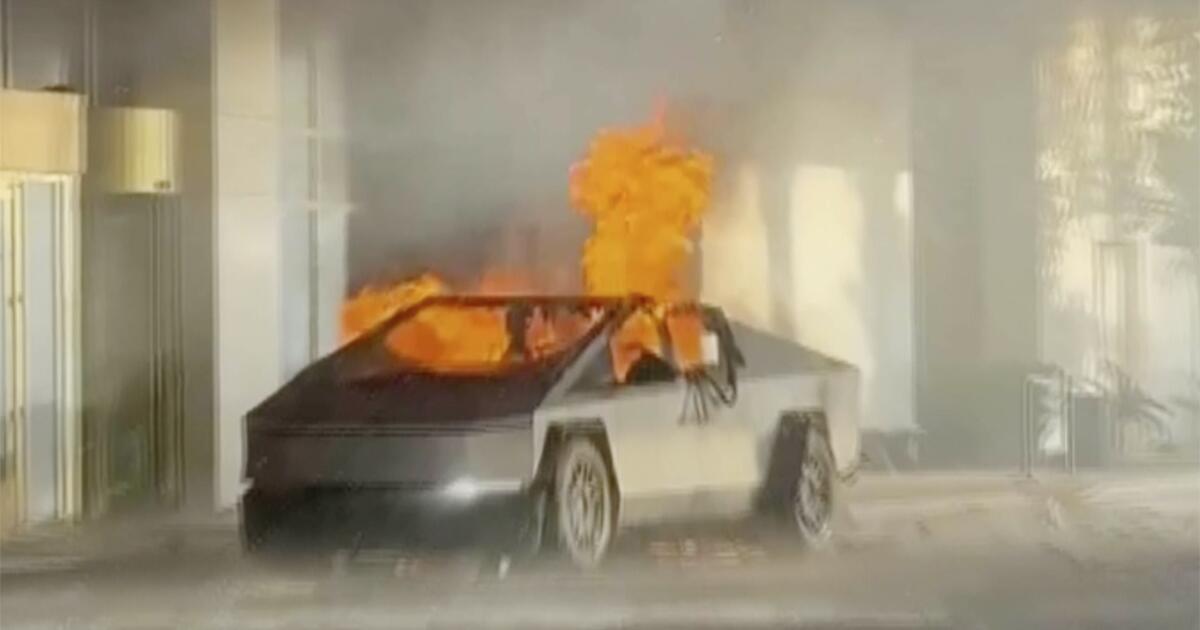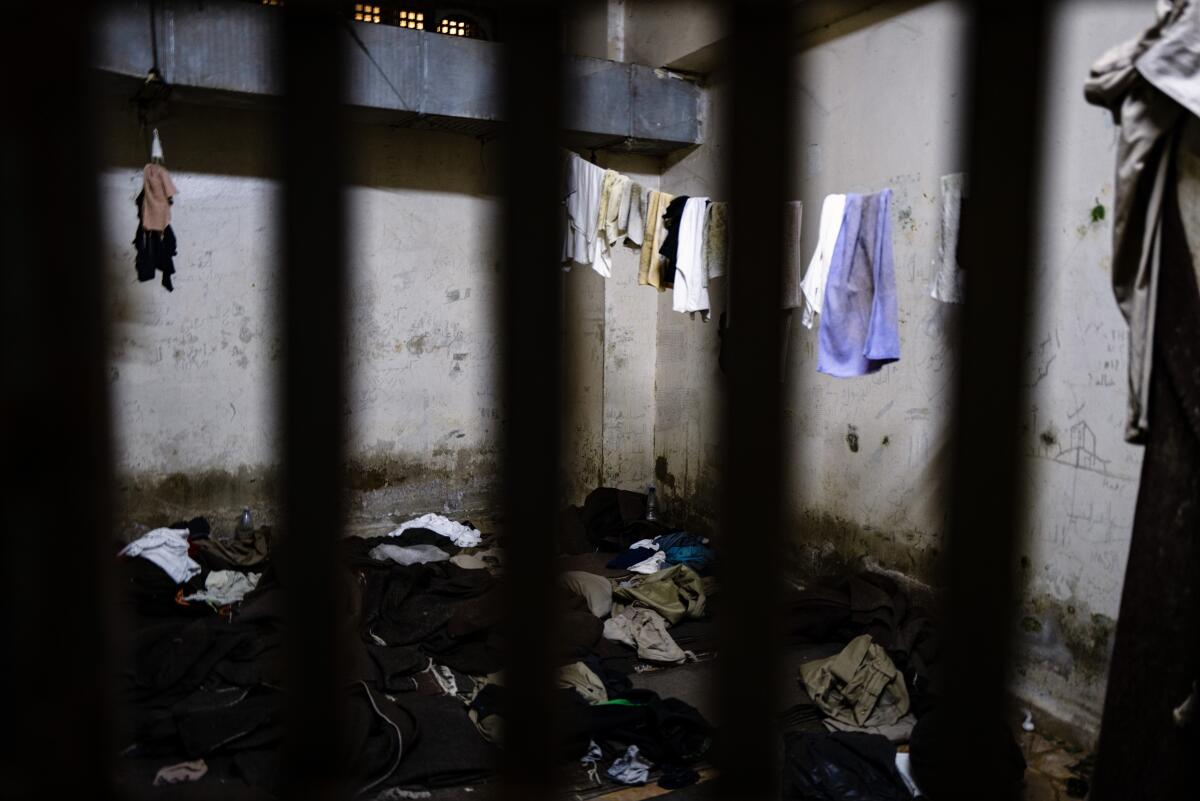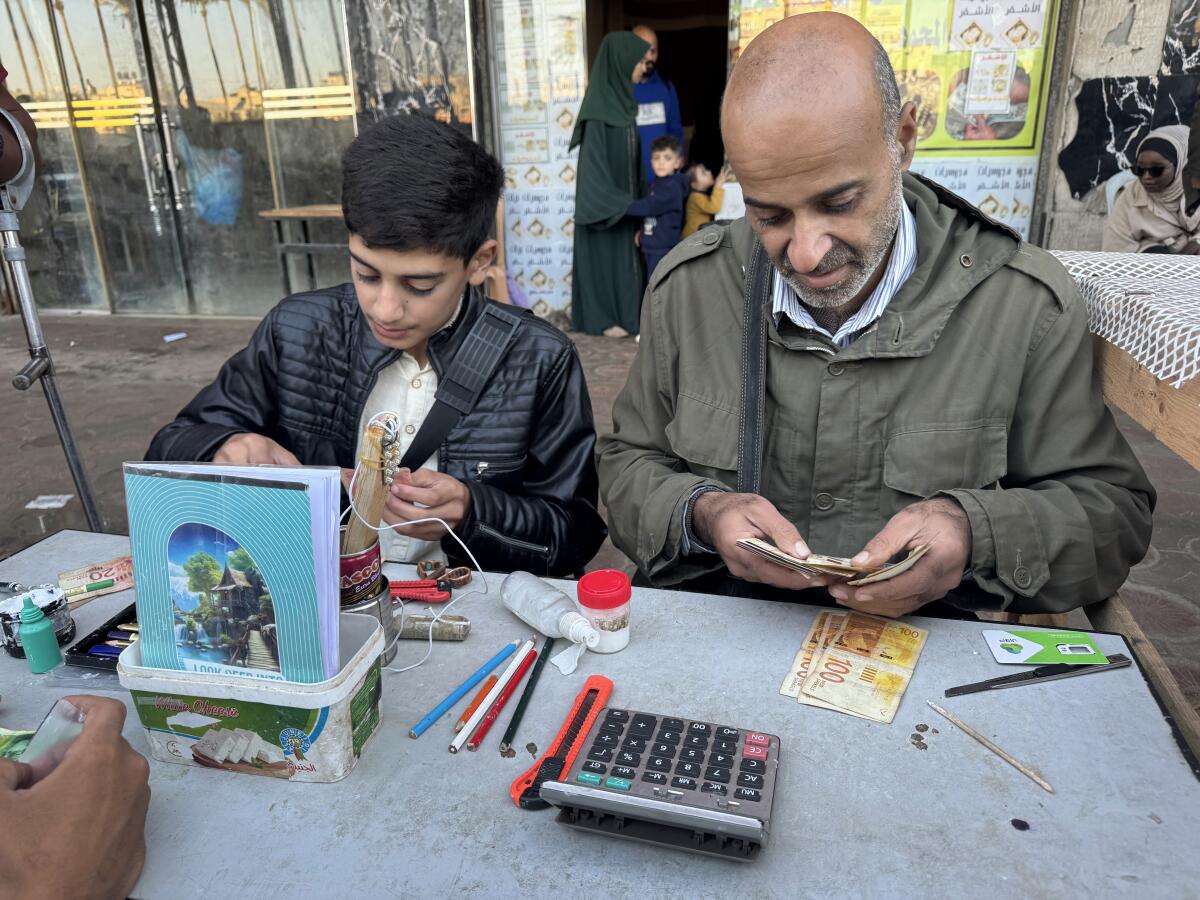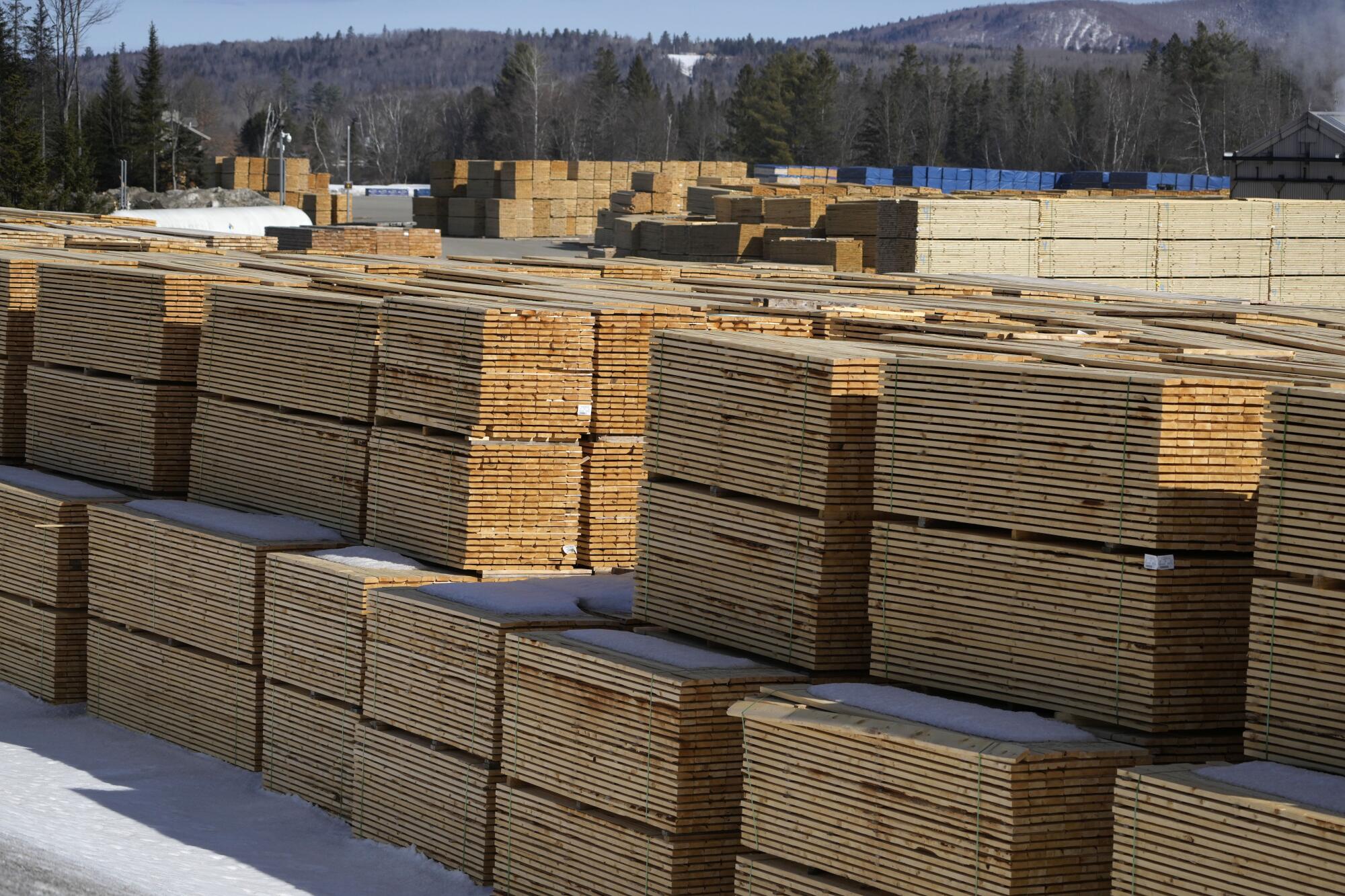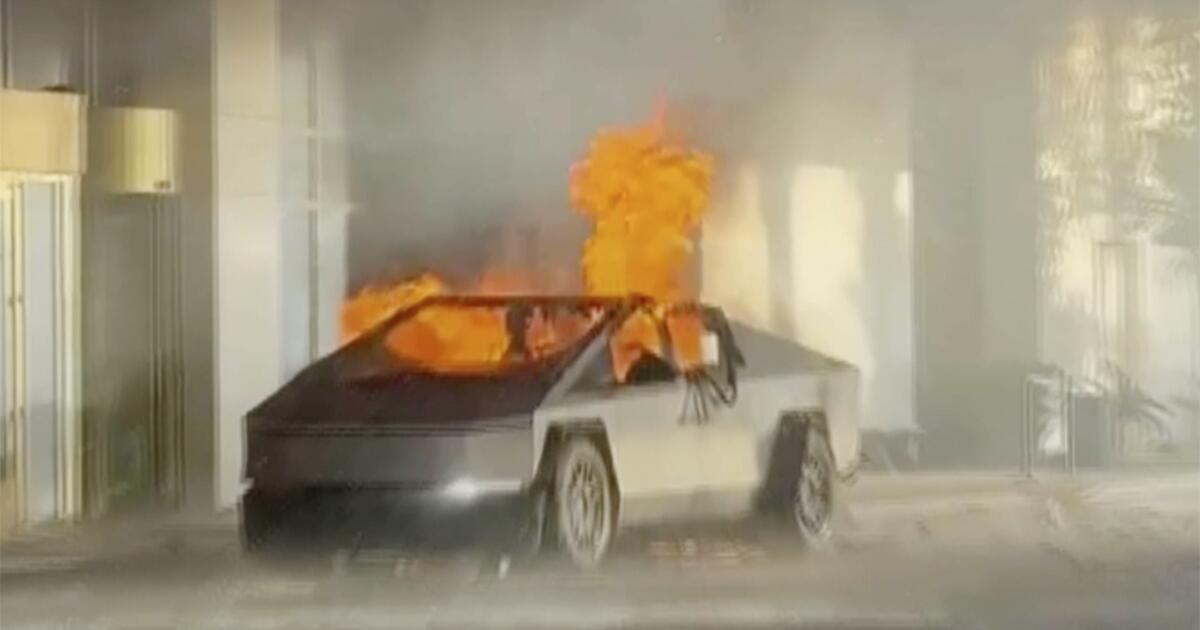
A driver had rented a Tesla Cybertruck out of Colorado and appeared to arrive in Las Vegas around sunrise on New Year’s Day.
Cameras showed the truck in Las Vegas at 7:30 a.m., authorities said. The driver traveled up and down the Strip for about an hour before pulling into the covered driveway outside the Trump International Hotel.
Roughly 17 seconds later, a massive explosion ripped through the truck and created a ball of flames that stunned those inside the hotel and the surrounding area. Seven people were hurt. And when police made it inside the truck, they discovered a body burned beyond recognition. Authorities later determined Matthew Livelsberger, 37, had fatally shot himself, presumably just before the explosion.
The case is being investigated as a possible act of terrorism, though officials said there are still many questions about what happened and the motive for the violence.
Here is what we know:
A quiet Vegas morning shattered by explosion
Livelsberger rented the Cybertruck in Denver on Saturday and charged the vehicle at Tesla charging stations throughout Colorado, New Mexico and Arizona, Las Vegas Metropolitan Police Department Sheriff Kevin McMahill said.
The vehicle was last tracked around 5:33 a.m. Wednesday in Kingman, Ariz., and was first spotted in Las Vegas around 7:29 a.m.
The vehicle was caught on a surveillance camera driving past the valet section of the Trump hotel an hour prior to the incident before returning, stopping at the front doors before exploding.
“The moment we were in the lobby about to turn the rotating doors, the explosion happened, we saw the Cybertruck there, and in a split second, ‘Boom!’ The first one super big,” Oscar Terol told Fox10 News in Las Vegas. “We both fell. My wife was before me, and lots of explosions afterward.”
At a nearby hotel, Lee Odom told the station: “It was not like, boom. It was like, boom and then it kind of reverberated and echoed, but it was not like one single boom for sure.”
Video of the explosion shows what look like fireworks going off around the truck.
Authorities found camp fuel, gasoline canisters and firework mortars in the truck bed.
The explosion didn’t significantly damage the Cybertruck and “vented out and up,” said Kenny Cooper, a special agent in charge for the Bureau of Alcohol, Tobacco, Firearms and Explosives. It also didn’t shatter the glass doors of the Trump hotel lobby nearby; the cache of explosives inside the Cybertruck was meant to fuel a bigger blast.
McMahill said in a Thursday news conference that a charred body was found inside the vehicle and police were able to determine the identity from the military identification, credit cards and passport found at the scene. The Associated Press reported Friday that investigators identified the Tesla driver — who was burned beyond recognition — as Livelsberger by a tattoo and by comparing DNA from relatives.
Driver identified as a Green Beret
Livelsberger was in the Army and served as a Green Beret master sergeant. He spent the majority of his time at Ft. Carson in Colorado and in Germany, according to authorities. He was on approved leave from Germany at the time of his death.
Livelsberger worked as a special forces operation manager for the Army since 2006 before switching to a remote and autonomous systems manager two months ago, according to his LinkedIn profile.
On his Facebook profile, Livelsberger once criticized the withdrawal of U.S. armed forces from Afghanistan in 2021. He called it the “biggest foreign-policy failure in the history of the United States.”
He entered the active-duty Army in December 2012 and was a candidate to be a Green Beret after serving in the Army Reserve and the National Guard.
The agency said in a statement that it is in “full cooperation with federal and state law enforcement agencies, but as a matter of policy, will not comment on ongoing investigations.”
The FBI, the ATF and the Colorado Springs Police Department served a search warrant Thursday morning at a home in Colorado Springs in connection with the explosion in Las Vegas. Federal authorities declined to provide additional details.
Looking for links to New Orleans attack, but no direct ties so far
The Tesla blast came hours after a man drove another truck through a crowded street in New Orleans, killing 14.
Both Livelsberger and Shamsud-Din Jabbar, identified as the assailant in the New Orleans attack, previously served at the Army’s Ft. Bragg, now known as Ft. Liberty, in North Carolina, but it is not clear whether they served at the same time or in the same unit. Both men also served in Afghanistan in 2009, though officials say they don’t have any evidence they were in the same location in the country or in the same unit, McMahill said. They both used rental company Turo to rent their vehicles.
Officials stressed that they have not found direct ties to any type of a conspiracy, though the investigation is continuing. Sources with knowledge of the Las Vegas case say some investigators are becoming doubtful about a link and are seeing the incident as a suicide related to personal issues. The Colorado Springs Gazette reported Livelsberger had struggled with marital problems in recent years.
On Friday, Las Vegas authorities said that Livelsberger left a suicide note saying the explosion would serve as a reminder of the country’s ills and would “cleanse my mind” of the lives lost of people he knew and “the burden of the lives I took.”
Federal investigators are following leads both domestically and internationally, including executing search warrants and interviewing witnesses, said Las Vegas FBI Special Agent in Charge Spencer Evans.
“There’s investigative activity taking place literally around the globe,” Evans said. “At this particular time … we have to focus on what we know and what we don’t know. It’s not lost on us that it’s in front of the Trump building, that it’s a Tesla vehicle, but we don’t have information at this point that definitively tells us or suggests it’s because of this particular ideology or any of the reasoning behind it.”
